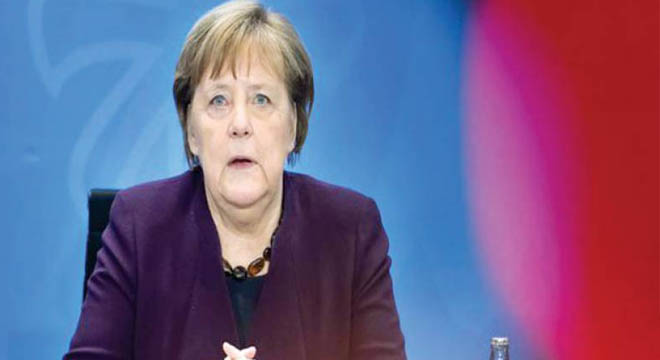Berlin-German Chancellor Angela Merkel on Wednesday reversed a planned strict Easter shutdown, the chief of her CDU party said, amid massive criticism of the government’s pandemic management.
Merkel and the leaders of Germany’s 16 states had agreed at marathon talks on Monday that almost all shops were to be closed on April 1-5, with only grocers allowed to open on Saturday April 3.
But they have now scrapped that measure, instead appealing to the public to stay home over the Easter weekend, CDU chief Armin Laschet told a regional parliament meeting in the state of North Rhine-Westphalia. The leaders had agreed the measure was “a mistake and not enforceable in this form”, he said. Merkel had called an unexpected crisis meeting on Wednesday morning as a backlash over the pandemic measures sent her CDU party’s ratings plummeting.
Ahead of a Merkel press conference at 1130 GMT, Der Spiegel news magazine said the chancellor had also admitted the Easter shutdown was a “mistake”. The leaders were expected to “talk very critically about what happened two days ago”, Laschet said ahead of the meeting.
Daniel Guenther, the state premier of Schleswig-Holstein, told the DPA news agency the meeting would focus on “implementation problems” around the measures agreed over Easter.
‘Wrong priorities’
The toughened shutdown had prompted fierce criticism, with the Bild daily calling the government’s pandemic management a “mess”.
“Merkel and the (regional leaders) have lost sight of the real problem,” it said. Der Spiegel called the measures a “scandal”, claiming the government had “completely the wrong priorities” and should instead focus on improving its vaccination campaign and test strategy. Infection numbers continue to rise in Germany, with 15,813 new cases reported in 24 hours on Wednesday by the Robert Koch Institute (RKI) health agency. As well as ordering the Easter shutdown, Merkel and the regional leaders agreed on Monday night to extend existing virus measures including keeping cultural, leisure and sporting facilities shut through to April 18.
“The situation is serious. Case numbers are rising exponentially and intensive care beds are filling up again,” Merkel said after announcing the measures. The British variant has become the dominant strain circulating in Germany, she said, noting: “We are in a new pandemic.”
But patience is running thin in the country over a sluggish vaccine rollout, a delayed start to mass rapid testing and higher infection numbers despite months of shutdowns, with support for Merkel’s Christian Democratic Union party at its lowest level for a year.
Europe’s top economy will elect a new government in September, as Merkel is retiring after 16 years in power.
Follow the PNI Facebook page for the latest news and updates.









